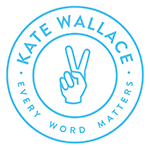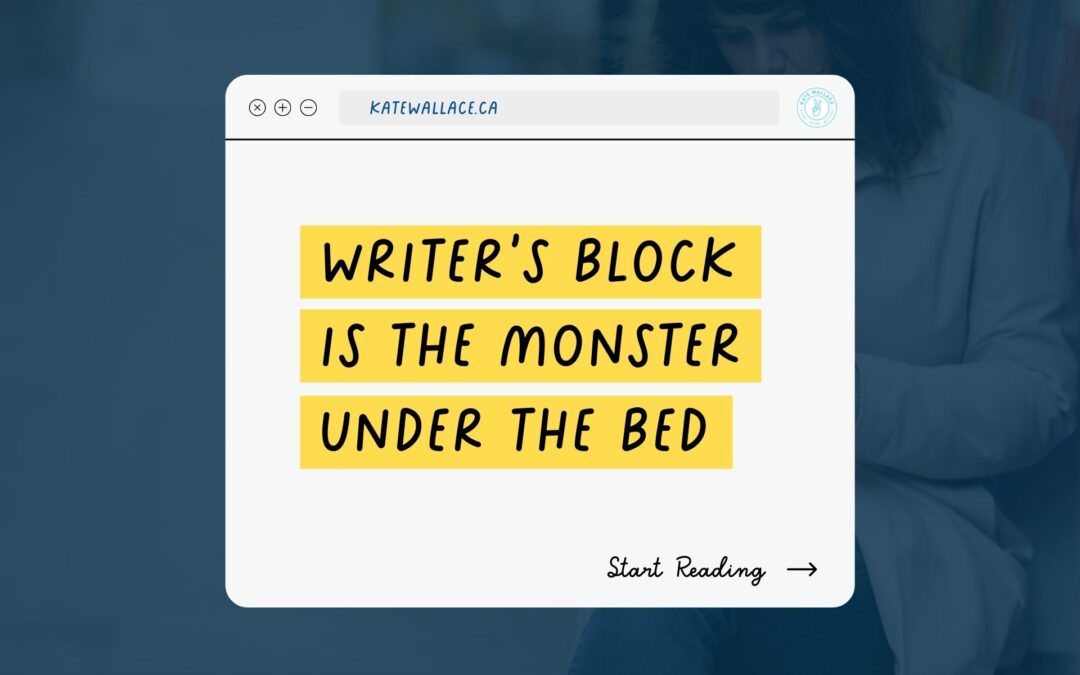Updated: April 2022
The pristine page. The blinking cursor. The blank mind. The mounting anxiety.
Writer’s block is one of the biggest clichés about writing. It’s that scene in the movie where the desperate scribe rips yet another inadequate or empty page from the typewriter, tossing the crumpled sheet on a growing pile of discards.
Writer’s block isn’t inevitable. There are a few simple habits that will ensure you’re never at a loss for words again.
Get ready to write.
My biggest takeaway from Philosophy 101 was that nothing comes from nothing. This notion applies to writing big time. All writing comes from something. It has a source, and that source is life.
The blank page is where we bring our inspiration, not find it.
We need to live life out there, then bring that energy and those ideas to the writing process.
One of the most important things I learned as a journalist was to take good and copious notes. If your memory is anything like mine, you can’t recall what you wanted to say two minutes ago, never mind that great conversation you had with a client or that cool thing you saw in the park. Cultivate your habit of noticing, and then writing it down.
Pretty soon, you’ll start to see raw material all around you, and you’ll have plenty to get you started before you even sit down to write.

Notebooks, everywhere.
I love me a good notebook—or 20.
I’ve got notebooks everywhere: my car, purse, desk, kitchen, and bedside table.
I use them to jot down ideas, to write intriguing things I hear on podcasts or quotes from interesting articles or books, funny conversations and little vignettes from my day. Questions, concerns, theories, queries–it runs the gamut.
These notes are the wellspring from which my posts, captions and content flow. The mythical muse is a fickle distraction—the actual spark to good writing is already happening all around you.
Trust the process.
Sometimes you can become blocked by your expectations. Sitting down at your desk at a pre-scheduled time and expecting your content to arrive fully formed is a mistake many writers make.
The best way to overcome your writer’s block? Write.
Even when it feels like you’re not writing what you wanted to, or when you feel like you’re getting off track, the practice of writing is the cure.
The process is the means to the end.
And there is always something to write about. Think you’ve got nothing exciting to cover? Look at Andy Warhol, the most famous American painter ever.
What did he paint? Soup cans. Warhol’s pop art made the everyday extraordinary. He made an art out of the banal.
So, ask yourself: what is your Campbell’s Soup can? What is sitting right under your nose, so obvious that you can’t even see it?
For me, it’s reading and words. I take them as such a given, such a fact of my life, I forget, sometimes, that others might also be interested in my experience of them.
Your soup can is not dull. Trust me.
Don’t worry that everyday stories and occurrences might be boring. People love them. Your readers will relish the little details of your life and brand. Still don’t believe me? Look no further than the explosion in Stories, Reels and TikTok for proof that minor events are fascinating.
Marcel Proust’s Remembrance of Things Past, one of the most revered novels in the western canon, is a series of everyday moments from an “unremarkable” life in the French countryside.
Take it from Proust: no detail is too small. No story too insignificant. What’s obvious or humdrum to you might be intriguing and novel to your audience. Put it out there—the more specific, the better. The closer we zero in on the details of our own experiences the more people will see themselves and their experiences in the work.
Writer’s block is a lie.
What we call “writer’s block” is usually crippling perfectionism.
It’s being scared to be mediocre. Shy to share your ideas. Reticent of embarrassment by showing yourself.
Writer’s block is actually a failure of curiosity—or confidence.
I’m happy to report both can be cultivated. In overcoming writer’s block, you need to build a routine of paying attention and recording your observations. You also need to develop the mental habit of telling yourself that your ideas are valid and worth sharing.
Since we all know that ‘perfect’ isn’t an option, we just have to imperfectly push through, silencing the demons that tell us we have no ideas–or at least no good ones.
So, to get started, I want you to think about one thing that happened to you today. Grab a piece of paper or your laptop and write it as a little scene, adding as much detail as possible.
Presto! Unblocked.



